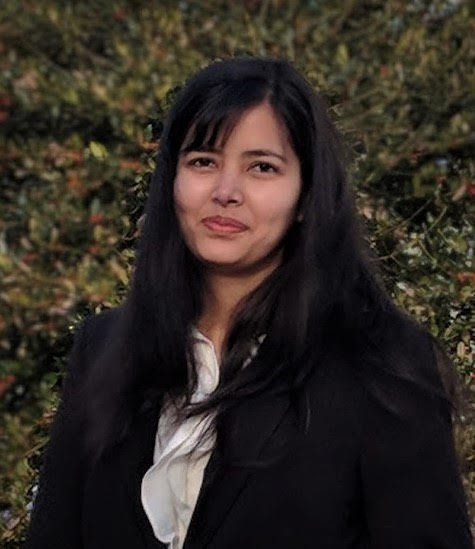
Year by year there has been a considerable increase in consumer awareness about environmental protection. Since childhood, we adopt an ecological culture and learn to do our part in protecting mother Nature. Today daily activities such as waste segregation or turning off the water tap when we brush our teeth have become a routine part of our life. However, the problem itself is more complex and requires firm action. Industrialization has influenced professionalizing of the areas that have not been largely known before. One of them is sustainable development, a term that gets thrown around quite a bit and which needs deeper understanding. Having this idea in mind, we spoke with Mugdha Singhal, a certified design professional and an expert in the field of sustainable development.
From an Architect to a Sustainable Designer
Equipped with an architecture background, Mugdha Singhal quickly began to put her passion for design into practice. While participating in architecture projects, Mugdha's interests inclined towards sustainable and environment-friendly design systems which paved the path for her to acquire a Master's degree in Sustainable Design from Thomas Jefferson University in Philadelphia. Her story gains momentum at this point, as by successfully completing various architecture, urban design, and industrial design projects she makes her mark.
Transforming Philly
At Thomas Jefferson, Mugdha was involved in transforming Philadelphia's unused and abandoned railway transportation path into a regenerative, sustainable region. She was part of the design team that was responsible for analyzing the physical site from different elemental lenses. Taking into consideration factors such as air, water, earth, fire (energy), culture, flora, and fauna, her team managed to successfully propose various ecological and adaptive design strategies like bio-solar roofs, algae garden, rain harvesting, pedestrian-friendly streets with electric buses system and air-purifying billboards. These innovative designs served as a breath of fresh air to the dusty and neglected areas of the city. The project was selected to be showcased at the 2017 Annual GeoDesign Summit. It also gained recognition as a Distinguished Honor during the 2017 Jefferson's Innovators Exposition.
A research to replace disposable plastic
After navigating through different dimensions of design, her interest was piqued in product design. Mugdha's thesis; Biobased Packaging: A Design for Food Packaging to Replace Disposable Plastics is a great example of her green development vision where she investigated the integration of science, and sustainability into product design. In this work, she has addressed the environmental impact of single-use plastics globally and worked on providing a novel solution to replace them. She extensively researched several methods to create bioplastic using compostable materials. She experimented with natural ingredients like corn starch, banana, orange, and potato peels. The outcome of this work was a bio-based material that could be molded in different shapes and can be used as an alternative to disposable plastic that we use in our day-to-day life. The focus of her work was to reduce and replace the main source of waste going into landfills and oceans.
So what's the fuss with sustainable design?
In general, sustainable products seek to reduce the negative impacts of industrialization and technological development on the environment. The UN World Commission on Environment and Development coined an accurate definition which says that "sustainable development meets the needs of the present without compromising the ability of future generations to meet their own needs". This is true, as sustainable development and design are not in opposition to technological advancement, but rather use the power of technology to better serve the environment and our communities. Across the U.S. the most common application of sustainable development are the green spaces which are implemented in the hearts of the cities or the crop rotation which enables growing different crops in the same area or the constructions that provide more efficient use of water, both industrially and in households.
America goes sustainable
Back in 2006 the U.S. Environmental Protection Agency introduced the WaterSense Program which certified products that use 20% less water than the federal minimum without sacrificing the performance. Since then, very few states, headed by California, have been willing to keep up with the resolution while preparing the state efficiency agenda. The efficiency of water appliances, a problem that is being solved by designing sustainable products, is a pressing concern in states endangered by drought and wildfires, such as Arizona, Texas, California, or Nevada. Another major issue that America is facing and was explored by Mugdha Singhal is renewable clean energy. Out of its numerous benefits, renewable energy is inexhaustible as solar, or wind are limitless resources that can be obtained without any harm to the environment. It is also economical, reliable, and has a positive impact on our health since no hazardous substances are produced along the process.
Sustainable solar design
As a sustainable product designer, Mugdha Singhal specializes in design of solar charging stations. At Sunbolt, which is the leading innovator in solar-powered workstations made from architectural-grade, eco-friendly materials, Mugdha is responsible for all things related to sustainable solar product development. She has worked on the entire Sunbolt portfolio including the company's flagship product, Campus XL. After redesigning it in 2018, it helped Puerto Rico University with off-grid solutions to tackle devastation caused by hurricane Maria.
There is no doubt that future generations will rely on sustainable development to survive and thrive. At some point, the resources which we now depend upon will become more expensive or deemed to exist. Mugdha Singhal believes that we should turn to renewable energy and sustainable products at a larger scale and truly learn how to benefit from the immense power of nature.




